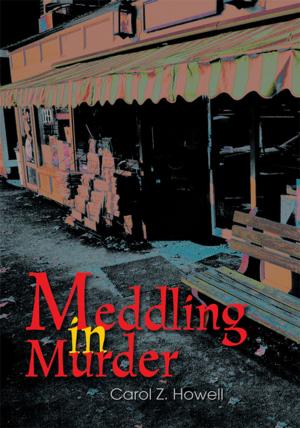| Author: | Lenworth Henry | ISBN: | 9781532019333 |
| Publisher: | iUniverse | Publication: | May 3, 2017 |
| Imprint: | iUniverse | Language: | English |
| Author: | Lenworth Henry |
| ISBN: | 9781532019333 |
| Publisher: | iUniverse |
| Publication: | May 3, 2017 |
| Imprint: | iUniverse |
| Language: | English |
Lenworth Henrys story began when he was born in Walkerswood, Jamaica, to parents who already had ten children between them. Shortly thereafter, the entire family moved five miles away, to a pioneering farming community; locally called New Pen, situated on the St Ann parish border with St Marys. New Pen was a well-organized and governed community, that firmly upheld religious principles. Lenworths early years were filled with the sights and sounds of the farm. On weekdays, people from nearby farms and villages would bring his father horses and mules to shoe at his blacksmith shop. Near the shop was a cow pen to which cows were brought on weekdays, to be counted, branded, neutered and captured for slaughter. Prior to reaching school age, Lenworth and his two youngest sisters would spend weekdays at the blacksmith shop, watching related drama unfold, under the watchful eyes of their strict parents. At first Lenworth struggled to establish an identity in a complicated world built on loyalty, unity and hard work. Ultimately, he transformed himself from a timid boy roaming the farm alone, to a member of a small clique that reveled in challenging the status quo, just for the fun of it. Lest We Forget brings the farm back to life in its recreation of the behavior of, not only the human residents, but of every living creature on the farm: from the minutest of insects to the most imposing of animals.
Lenworth Henrys story began when he was born in Walkerswood, Jamaica, to parents who already had ten children between them. Shortly thereafter, the entire family moved five miles away, to a pioneering farming community; locally called New Pen, situated on the St Ann parish border with St Marys. New Pen was a well-organized and governed community, that firmly upheld religious principles. Lenworths early years were filled with the sights and sounds of the farm. On weekdays, people from nearby farms and villages would bring his father horses and mules to shoe at his blacksmith shop. Near the shop was a cow pen to which cows were brought on weekdays, to be counted, branded, neutered and captured for slaughter. Prior to reaching school age, Lenworth and his two youngest sisters would spend weekdays at the blacksmith shop, watching related drama unfold, under the watchful eyes of their strict parents. At first Lenworth struggled to establish an identity in a complicated world built on loyalty, unity and hard work. Ultimately, he transformed himself from a timid boy roaming the farm alone, to a member of a small clique that reveled in challenging the status quo, just for the fun of it. Lest We Forget brings the farm back to life in its recreation of the behavior of, not only the human residents, but of every living creature on the farm: from the minutest of insects to the most imposing of animals.















